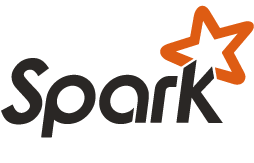#
# Licensed to the Apache Software Foundation (ASF) under one or more
# contributor license agreements. See the NOTICE file distributed with
# this work for additional information regarding copyright ownership.
# The ASF licenses this file to You under the Apache License, Version 2.0
# (the "License"); you may not use this file except in compliance with
# the License. You may obtain a copy of the License at
#
# http://www.apache.org/licenses/LICENSE-2.0
#
# Unless required by applicable law or agreed to in writing, software
# distributed under the License is distributed on an "AS IS" BASIS,
# WITHOUT WARRANTIES OR CONDITIONS OF ANY KIND, either express or implied.
# See the License for the specific language governing permissions and
# limitations under the License.
#
from pyspark import SparkContext
from pyspark.mllib.common import callMLlibFunc, callJavaFunc
from pyspark.mllib.linalg import SparseVector, _convert_to_vector
__all__ = ['KMeansModel', 'KMeans']
[docs]class KMeansModel(object):
"""A clustering model derived from the k-means method.
>>> from numpy import array
>>> data = array([0.0,0.0, 1.0,1.0, 9.0,8.0, 8.0,9.0]).reshape(4,2)
>>> model = KMeans.train(
... sc.parallelize(data), 2, maxIterations=10, runs=30, initializationMode="random")
>>> model.predict(array([0.0, 0.0])) == model.predict(array([1.0, 1.0]))
True
>>> model.predict(array([8.0, 9.0])) == model.predict(array([9.0, 8.0]))
True
>>> model = KMeans.train(sc.parallelize(data), 2)
>>> sparse_data = [
... SparseVector(3, {1: 1.0}),
... SparseVector(3, {1: 1.1}),
... SparseVector(3, {2: 1.0}),
... SparseVector(3, {2: 1.1})
... ]
>>> model = KMeans.train(sc.parallelize(sparse_data), 2, initializationMode="k-means||")
>>> model.predict(array([0., 1., 0.])) == model.predict(array([0, 1.1, 0.]))
True
>>> model.predict(array([0., 0., 1.])) == model.predict(array([0, 0, 1.1]))
True
>>> model.predict(sparse_data[0]) == model.predict(sparse_data[1])
True
>>> model.predict(sparse_data[2]) == model.predict(sparse_data[3])
True
>>> type(model.clusterCenters)
<type 'list'>
"""
def __init__(self, centers):
self.centers = centers
@property
[docs] def clusterCenters(self):
"""Get the cluster centers, represented as a list of NumPy arrays."""
return self.centers
[docs] def predict(self, x):
"""Find the cluster to which x belongs in this model."""
best = 0
best_distance = float("inf")
x = _convert_to_vector(x)
for i in xrange(len(self.centers)):
distance = x.squared_distance(self.centers[i])
if distance < best_distance:
best = i
best_distance = distance
return best
[docs]class KMeans(object):
@classmethod
[docs] def train(cls, rdd, k, maxIterations=100, runs=1, initializationMode="k-means||"):
"""Train a k-means clustering model."""
model = callMLlibFunc("trainKMeansModel", rdd.map(_convert_to_vector), k, maxIterations,
runs, initializationMode)
centers = callJavaFunc(rdd.context, model.clusterCenters)
return KMeansModel([c.toArray() for c in centers])
def _test():
import doctest
globs = globals().copy()
globs['sc'] = SparkContext('local[4]', 'PythonTest', batchSize=2)
(failure_count, test_count) = doctest.testmod(globs=globs, optionflags=doctest.ELLIPSIS)
globs['sc'].stop()
if failure_count:
exit(-1)
if __name__ == "__main__":
_test()
